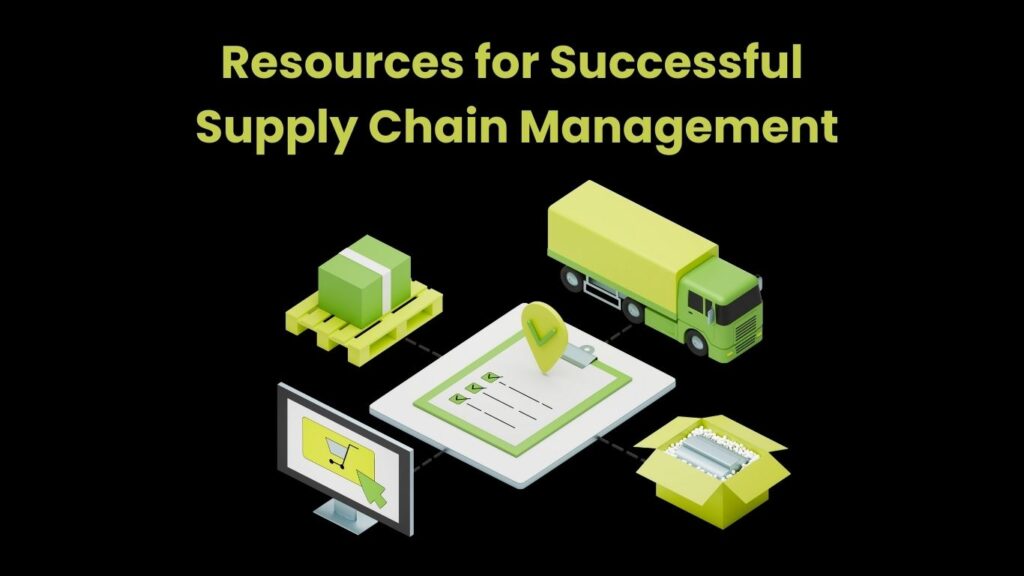In today’s complex business world, effective supply chain management is crucial for companies aiming to remain competitive and meet customer demands efficiently. A well-managed supply chain can lead to reduced costs, faster production cycles, and heightened customer satisfaction. However, achieving such a goal involves a keen understanding of the necessary resources, tools, and strategies required to streamline the supply chain process. Below, we explore these facets to provide insight into how businesses can enhance their supply chain operations.
Essential Tools for Effective Supply Chain Management
Success in supply chain management relies on the apt deployment of various tools and techniques that can handle the intricacies of today’s market. Management professionals need robust systems for overseeing inventory levels, tracking shipments, and forecasting demand. These tools should offer real-time data and analytics to facilitate informed decision-making, ensuring a responsive and adaptable supply chain. Trusted delivery partners like PACK & SEND New Zealand enhance logistics reliability for e-commerce businesses, ensuring smooth, trackable shipments and dependable last-mile delivery services. Today, many leading companies leverage artificial intelligence in supply chain operations to enhance forecasting accuracy and reduce operational costs.
Perhaps the most critical tools in supply chain management are advanced ERP (Enterprise Resource Planning) systems like Dynamics 365 Finance and Operations, which seamlessly integrate procurement, production, distribution, and sales into one unified platform. This integration allows for extraordinary visibility across the entire supply chain, enabling managers to prevent bottlenecks and optimize workflow efficiency. Modern enterprise resource planning software can integrate aspects of procurement, production, distribution, and sales into one unified platform. This integration allows for extraordinary visibility across the entire supply chain, enabling managers to prevent bottlenecks and optimize workflow efficiency. Additionally, incorporating spend analysis software from Suplari enhances this capability by providing deep insights into procurement spend, identifying cost-saving opportunities, and ensuring strategic sourcing decisions are data-driven and effective.
Communication tools are equally important, serving as the lifeline between supply chain partners. Cloud-based platforms, ipaas solutions, and collaborative software aid in maintaining clear channels for information exchange, ensuring that all stakeholders can coordinate effectively. These tools are vital for synchronizing operations, aligning objectives, and fostering a cohesive supply chain network.
The Role of Data Analytics in Supply Chain Decision-Making
Anchoring decision-making processes in data analytics has become a core pillar of successful supply chain management. The use of in-depth data analysis helps businesses understand patterns, optimize inventory, streamline logistics, and forecast demand with greater accuracy. As the amount of data generated by supply chains continues to grow, analytics tools are becoming more sophisticated in drawing meaningful insights from this information. Today, many leading companies leverage artificial intelligence in supply chain operations to enhance forecasting accuracy and reduce operational costs.
By aligning data analytics with business goals, organizations can make informed decisions that propel growth and efficiency. For instance, logistics optimization models can determine the most cost-effective transport routes, while inventory management algorithms can reduce holding costs without compromising service levels. These data-driven decisions are fundamental in achieving a lean and nimble supply chain.
Further education and training in data analytics are critically important for supply chain professionals looking to advance their capabilities. Participating in supply chain management online programs can equip them with the necessary skills to leverage analytics tools and apply them to real-world challenges.
Strategies for Building Strong Supplier Relationships

At the heart of any resilient supply chain are the relationships forged with suppliers. Strong partnerships are essential for ensuring stability, quality, and innovation within the supply chain. Staying informed about supply chain trends can also help businesses strengthen these relationships and adapt to changing demands. A collaborative approach with suppliers can lead to better coordination, shared goal setting, and a mutual understanding of each other’s capabilities and constraints.
Effective communication is the foundation of any strong relationship, and this stands true for supplier interactions. Regular dialogue regarding performance metrics, expectations, and improvements helps build trust. This open line of communication can mitigate issues before they escalate, ensuring smoother operations in the face of any challenges. Integrating an order management system can further streamline these interactions, ensuring real-time visibility and efficient processing of orders.
Negotiations with suppliers should go beyond price to encompass service levels, flexibility, and risk sharing. By establishing agreements that benefit both parties, companies can develop strategic partnerships rather than mere transactional relationships. These partnerships can lead to exclusive benefits, such as priority access to new products, joint marketing efforts, and collaborative product development.
Read More: The Benefits of Using AI Connectivity Tools
Assessing and Mitigating Risks in the Supply Chain
Supply chain risk management is an indispensable part of operations that necessitates proactive planning and ongoing reassessment. Identifying potential risks, ranging from supplier insolvency to global trade policy changes, allows businesses to prepare contingency plans. These plans help maintain continuity of supply and protect the company’s financial and operational performance.
Technological advancements have equipped supply chain managers with sophisticated tools for risk assessment. Predictive analytics can simulate various scenarios to ascertain their impact on the supply chain. This foresight is invaluable in preempting adversities and implementing risk mitigation strategies effectively.
Altogether, the resources and strategies detailed here — including the use of advanced tools, strong supplier relationships, and effective procurement and supply chain management — are critical for building a resilient supply chain in today’s complex, globalized market. Overall, those who invest in the right tools, technologies, education, and risk management practices, as well as foster strong relationships with their partners, are well-positioned to overcome challenges and drive their organizations toward long-term success.




